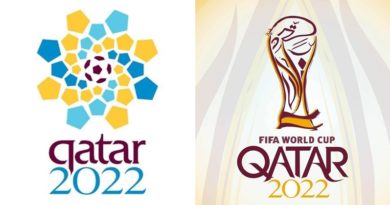VISA: IMMIGRATION CORNER- Federal court also bans State Department’s 2018 public charge rule
IMMIGRATION CORNER
– Michael J. Gurfinkel
 In a previous article, I wrote that on July 29, 2020, a federal court judge issued a nationwide injunction prohibiting USCIS from enforcing, applying, implementing or treating as effective, Pres. Trump’s new public charge rules as long as there is a national health emergency caused by the COVID-19 outbreak. On the same day, the judge also issued a nationwide injunction prohibiting the Department of State (DOS) and US embassies around the world from applying their own 2018 public charge regulations, which went into effect Feb. 24, 2020.
In a previous article, I wrote that on July 29, 2020, a federal court judge issued a nationwide injunction prohibiting USCIS from enforcing, applying, implementing or treating as effective, Pres. Trump’s new public charge rules as long as there is a national health emergency caused by the COVID-19 outbreak. On the same day, the judge also issued a nationwide injunction prohibiting the Department of State (DOS) and US embassies around the world from applying their own 2018 public charge regulations, which went into effect Feb. 24, 2020.As everyone is aware, DOS’s 2018 public charge rules were very strict and restrictive, and people could have their visas refused on public charge grounds unless they could demonstrate, among other things, that they already had available, within 30 days of entry, “approved health insurance” or the financial resources to pay for medical expenses and had not received 12 months of public assistance during a 36-month period.
The previous/existing 1999 public charge guidance defined “public charge” as a noncitizen who has become, or is likely to become, “primarily dependent on the government for subsistence, as demonstrated by either (i) the receipt of public cash assistance for income maintenance or (ii) institutionalization for long-term care at government expense.”
In 2018, DOS changed the public charge analysis, instructing consular officers to give negative weight to the receipt of any kind of public assistance, including non-cash benefits, and that the affidavit of support would merely be a positive factor, rather than normally sufficient to satisfy the public charge requirements. (In other words, before these changes, if a sufficient affidavit of support [Form I-864] was submitted, that was the end of the inquiry on public charge. But in 2018, an affidavit of support merely became one of many factors in the public charge analysis.)
In its 52-page ruling, the court concluded the DOS’s 2018 public charge revisions “likely exceed the limits of the ‘public charge’ definition under the Immigration and Nationality Act (INA),” because they require consular officers to evaluate the receipt of public assistance of any type, at any time and by any family member in making the public charge determination, including non-cash benefits, and are thus “arbitrary and capricious.”
While this is great news, I would still advise people to consult with an immigration attorney concerning their eligibility for the immigration benefit they are applying for, and concerning public charge issues. The Trump administration could appeal the injunction and have it overturned or lifted. That means you should still evaluate your case in reference to eligibility under these new, proposed rules and be careful about applying for or accepting the types of public benefits included in this new rule, just in case this injunction is lifted.
In addition, Trump issued a proclamation banning issuance of immigrant visas until 2021. So, there could be further developments on public charge or visa eligibility. The rules on eligibility for immigration benefits are changing all the time, and it can be very confusing and complex for people. That’s why I advise that rather than taking chances and handling your case on your own, you should seek the advice and assistance of an attorney.
.


WEBSITE: www.gurfinkel.com
Follow us on Facebook.com/GurfinkelLaw, Twitter @GurfinkelLaw and YouTube: US Immigration TV
Four offices to serve you: PHILIPPINES: (02) 88940258 or (02) 88940239; LOS ANGELES; SAN FRANCISCO; NEW YORK: TOLL FREE NUMBER: 1-866-GURFINKEL (1-866-487-3465)


SIGN UP TO RECEIVE OUR EMAIL
.
The most important news of the day about the ASEAN Countries and the world in one email: [email protected]
9.17.2020











